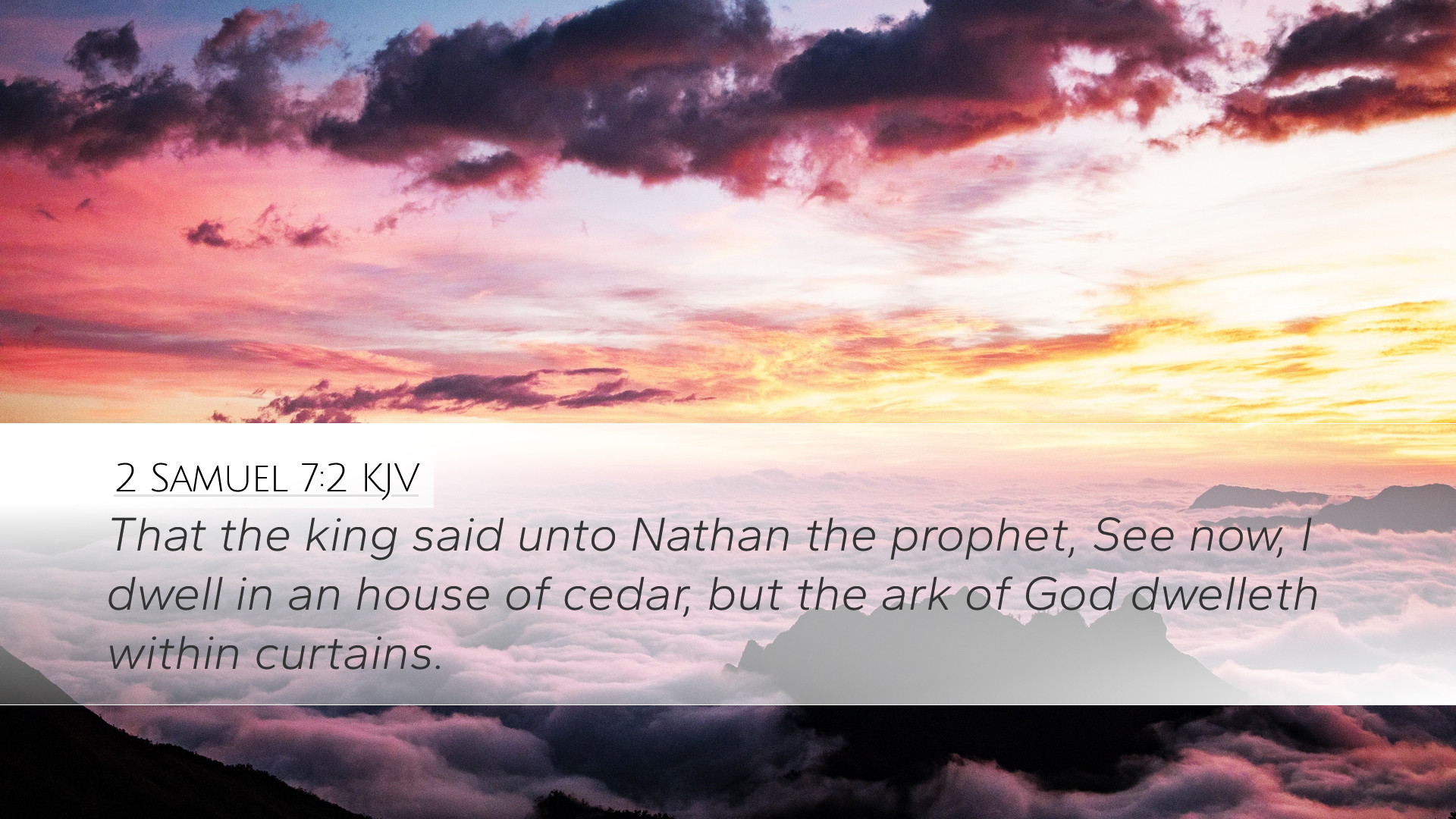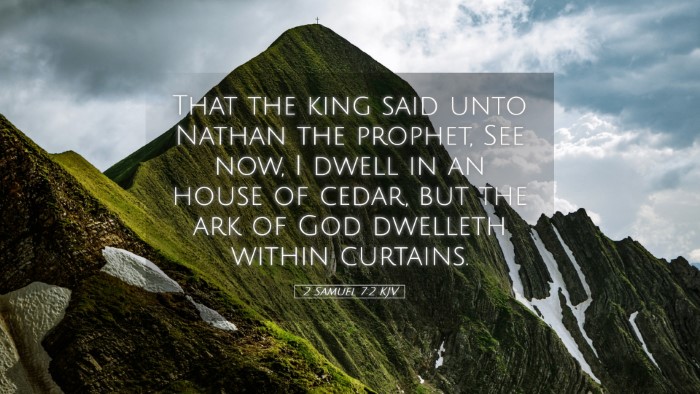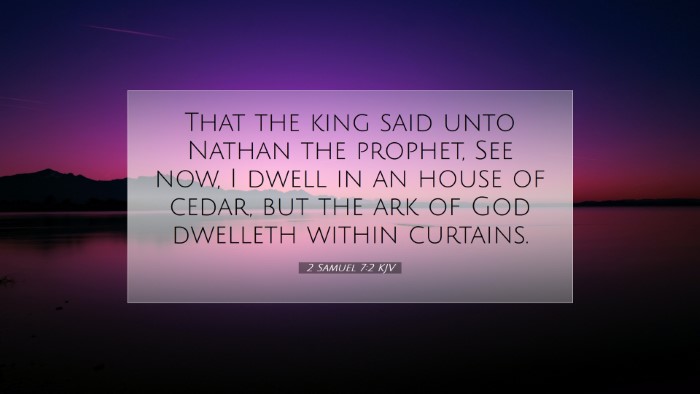Commentary on 2 Samuel 7:2
Verse Reference: 2 Samuel 7:2
In this verse, we encounter King David as he reflects on his personal living conditions contrasted with the divine presence of God symbolized in the Ark of the Covenant, which resides in a tent. This pivotal moment sets the groundwork for God's promises and covenantal blessings that follow in this chapter.
Contextual Overview
The historical context surrounding 2 Samuel 7 is essential for understanding its theological implications. David, having established his reign and secured his kingdom, now desires to build a permanent dwelling for the Ark of the Covenant, a symbol of God's presence among His people. This desire emerges from a sense of responsibility and reverence, revealing David's deep commitment to God’s honor.
Theological Insights
Various commentaries provide rich theological insights into this verse, focusing on themes of divine presence, worship, and the nature of God’s covenant with Israel.
-
Matthew Henry's Commentary:
Henry emphasizes David's heart for the Lord. He notes the importance of David's desire to honor God by constructing a house for His presence. This desire is shown to be noble, reflecting a king who acknowledges the greatness of God amidst his own earthly comforts.
-
Albert Barnes’ Notes:
Barnes highlights the contrast between David's luxurious palace and the Ark's humble tent. He points out that David’s concern underscores a profound respect for the Lord, indicating that the Ark, representing God’s throne, should not dwell in obscurity while David enjoys comfort and luxury.
-
Adam Clarke's Commentary:
Clarke offers an interpretation that emphasizes the significance of David being a man after God’s own heart. He discusses the impulsive desire of David to build the temple, suggesting that while it is a great thought, God has a different plan which will be more fully revealed in the subsequent verses.
Key Themes
-
Divine Presence:
The Ark residing in a tent symbolizes God's presence with His people. David's desire to create a more fitting dwelling represents a longing for intimacy with God.
-
The Human Desire to Honor God:
This verse showcases David's initiative to honor God as a leader, a theme significant for pastors and church leaders today. It invites reflection on how one can honor God in their own context.
-
God's Plans vs. Human Ambitions:
While David had a plan to build a temple, God interrupts this ambition with His own divine intentions. This introduces the theme that God’s plans often transcend human desires, a critical reminder for theologians and students of the Scriptures.
Application for Today
The reflections from this verse can guide contemporary believers in their walk with God. It raises a few poignant questions:
- How can we ensure that our desires align with God’s will in our lives?
- What steps can leaders take to honor God in practical ways, especially in positions of influence?
- In what ways do we prioritize our relationship with God over our earthly comforts and ambitions?
Conclusion
2 Samuel 7:2 serves as a profound reminder of the tension between human ambitions and divine will. David’s desire to build a house for the Lord reflects a heart devoted to worship and honor. The commentaries illustrate the necessity of aligning our lives and our ministries with God's overarching purposes. As we dive deeper into the narratives of Scripture, may we each seek to understand and commit to God's plans, realizing that truly honoring Him often leads us to unexpected yet blessed paths.


